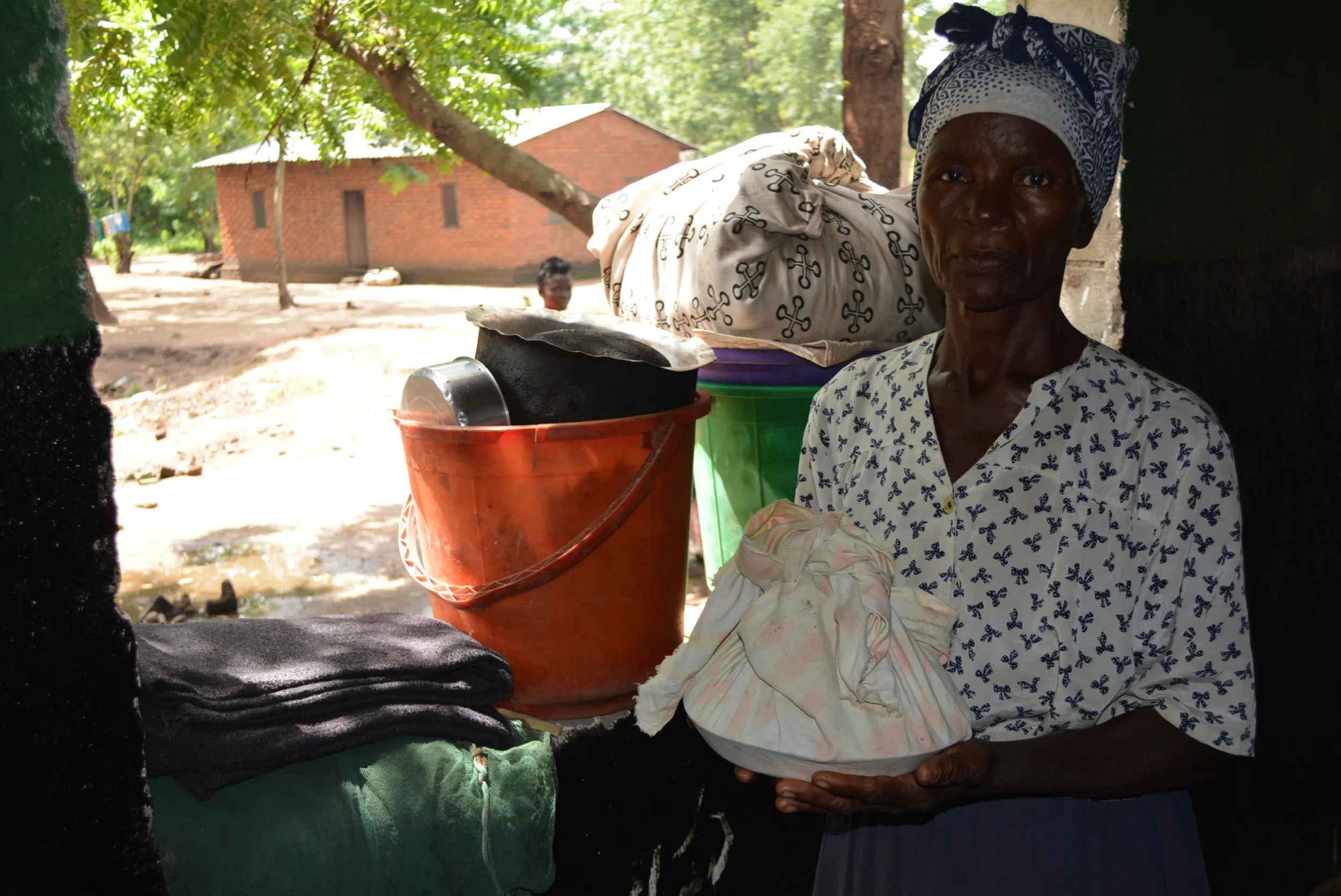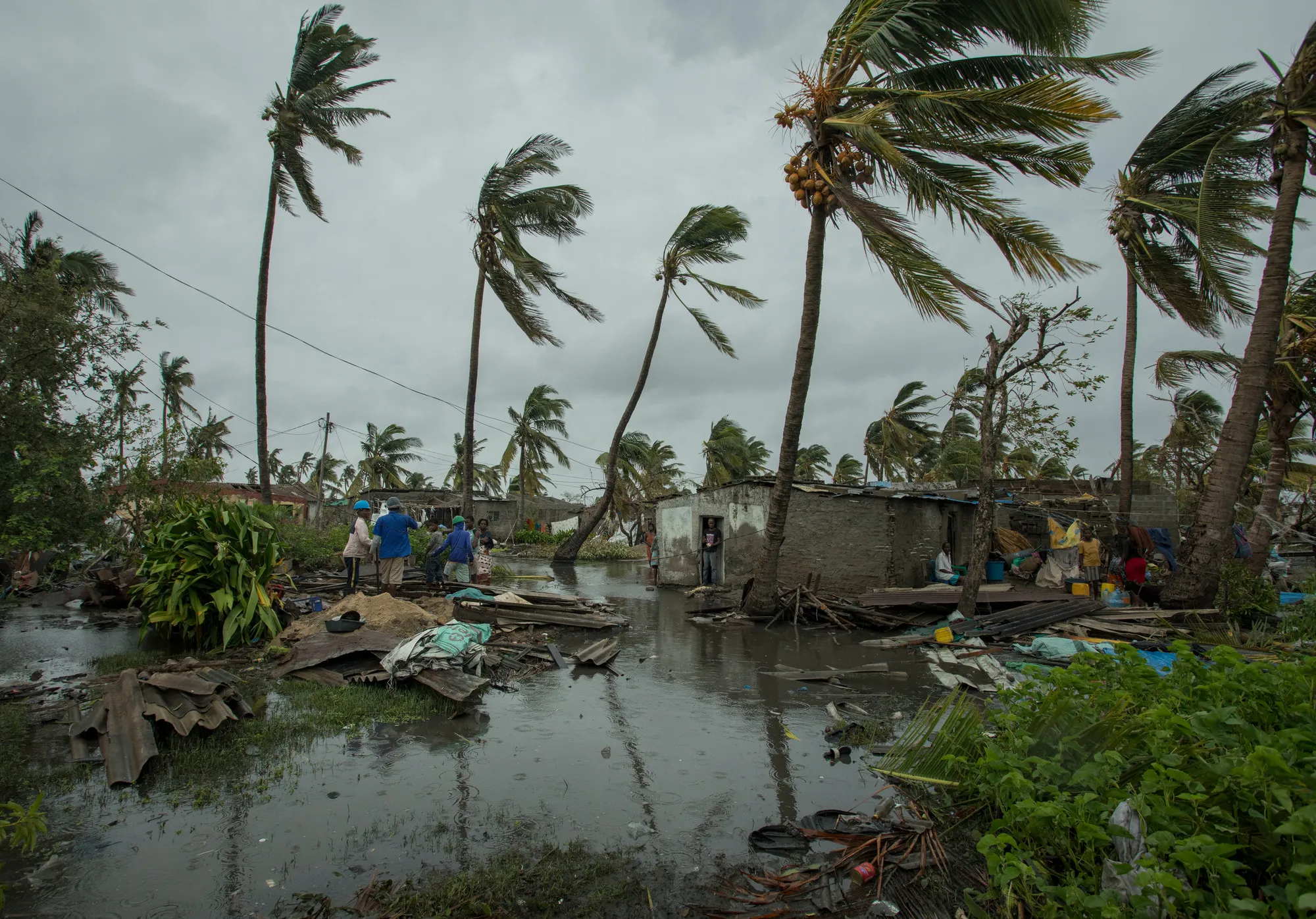The devastating effects of Cyclone Idai, a category 4 cyclone that hit Malawi, Mozambique and Zimbabwe two weeks ago, are still being felt. More than 3 million have been affected and people continue to flock to temporary shelters to seek refuge.
In southern Malawi’s Nsanje and Phalombe districts, some of the country’s most affected areas, sprawling camps for the displaced have mushroomed in schools and on available dry ground. Thirty-two camps are hosting approximately 26,000 people made homeless by cyclone-induced floods. Across Malawi, more than 86,000 people have been displaced and nearly 869,000 have been impacted.
Fanita Joseph, 58 (pictured above), moved to an evacuation camp in Ndamera after her village was submerged by floods in the middle of the night.
“There was commotion in the village as everyone was trying to rescue their belongings and food from their granaries,” she says. “But it was too late. The water level was rising fast and we had to escape upland by canoes, leaving everything we owned behind.”


